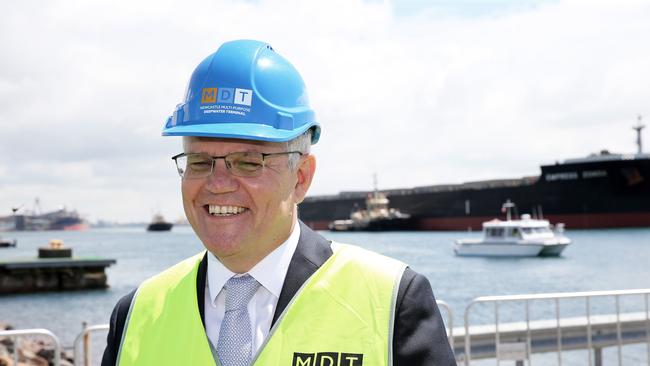
And there is also the potential of two so-called “Tampa events”, named after John Howard’s famous surprise 2001 election victory partly on the back of the refugee-laden vessel.
As I will describe, one potential “Tampa” is the attempt by waterfront workers to introduce the British aristocratic system to our wharves. Another is what is being taught in schools.
But the major event is the current state of the economy. Josh Frydenberg is predicting a dramatic rebound in the wake of the curtailment of many of the Covid-19 restrictions and the high levels of vaccination in Australia.
That rebound is occurring at a rapid pace, but it’s actually a widening of the boom in hard goods and other areas that began around April-May last year. People have cash at the ready and are spending. What we are now seeing is a catch-up in those areas of the economy that were Covid-depressed while other areas were booming.
Instead of moderating the 18-month-old boom, the Martin Place-centred Reserve Bank has decided to wait for evidence of the full recovery.
There is clear risk that it has overstimulated the economy, which will trigger further sharp rises in prices (boosted by supply shortages) and wages that extend to much higher interest rates on a highly borrowed society.
The dangers created by a likely Reserve Bank mistake will become apparent to everyone around May next year, when the election is due. For the moment, Australians led by Victoria and NSW are basking in the surge of activity as graphically described by National Australia Bank.
NAB says Melbourne businesses are benefiting from an overall estimated customer spending increase of 21 per cent compared to pre-lockdown levels, while regional Victoria is roaring forward with an increase of 28 per cent in the same period.
NAB estimates that in the weeks after lockdown ended, $200m was spent at restaurants (up 23 per cent on pre-lockdown transactions), more than $800m on retail (up 25 per cent) and more than $38m on accommodation (up 72 per cent), which are huge increases.
NSW rebounded earlier, so together the two most-populated states have become economic powerhouses. Other states will follow.
This resurgence is creating serious shortages of labour in wide areas of the economy, led by restaurants and cafes but extending across into building and many other areas.
In some industries such as restaurants, wages rates are rising 10 per cent and even 20 per cent as the enterprises desperately try to either keep their staff or attract outsiders. The lack of students and migrants is having a big impact. Wage increases at that level must be put immediately onto the prices. At the moment, people are paying those higher prices.
Meanwhile, stunningly the Reserve Bank is actually printing money by buying bonds in the midst of this roaring boom. In the process, it is also keeping a lid on market interest rates. APRA has attempted to curb banks hosing money at the housing industry by modifying loan requirements, but it’s a relatively small measure.
The risk for politicians is that if price increases move beyond the current 3 per cent level to perhaps 4 per cent and 5 per cent, the bank will be forced to act.
History tells us that when central banks reverse policy they often react too far the other way. Calling an early election is a high-risk strategy for any prime minister behind in the opinion polls. And the Morrison government still has important measures to introduce, including desperately needed reform of the broken taxation collection system.
Then come the potential “Tampa” issues.
I set out the waterfront issue on Monday under the heading “War on the waterfront”.
People do not take kindly to widespread shortages of goods. At the moment, the shortages are partly created by problems in the China supply chain, but increasingly they will be linked to the reluctance of ships to come to Australia because of the work bans and other actions on the waterfront.
Once people discover that one of the reasons they cannot obtain goods is because waterfront workers want their descendants to be entitled to high-paid jobs, there is likely to be great anger.
The solution is to amend the competition laws so that extreme industrial actions can be blocked in the same way as corporate cartels. Such a government action clearly has dangers near an election.
The education “Tampa” also has dangers. In the US, the Virginia election saw the community exercising a backlash against what their children are being taught about their own history. The same thing is happening in Australia, but there has not been the same level of community protest.
But parents have now discovered what is actually in the curriculum as their children went through long periods of home schooling during the pandemic.
Federal Education Minister Alan Tudge has highlighted the issues, but there is limited evidence yet of widespread community anger. However, it maybe below the surface.
Meanwhile, after 18 months of experiencing a hidden boom, it’s now all out in the open and Australians will enjoy strong Christmas trade over wide areas.




The business of selecting election dates is a matter for the prime minister and the constitution. But in November 2021 remarkable events are taking place in Australia that will tempt Scott Morrison to go early.